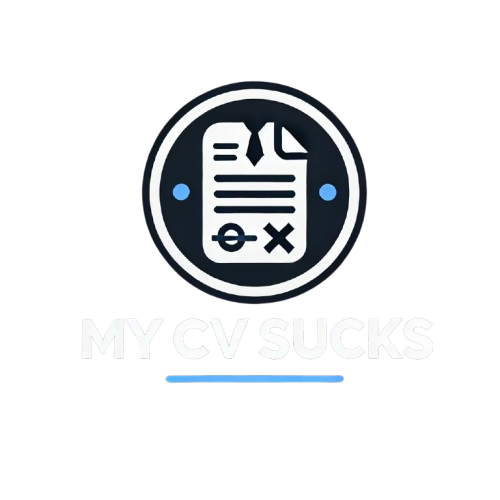interview tips
Ace the Interview: How to Handle Unexpected Salary Questions in South Africa

Ace the Interview: How to Handle Unexpected Salary Questions in South Africa
Navigating salary discussions during job interviews can be tricky, especially in South Africa's dynamic job market. How to handle unexpected interview questions about my salary expectations? This is a common concern for many job seekers. This guide will equip you with the strategies and confidence to tackle these questions head-on and secure the salary you deserve.
Understanding the South African Salary Landscape
Before we dive into handling unexpected questions, let's understand the context. Salary expectations in South Africa vary greatly depending on your industry, experience level, qualifications, and location. Researching average salaries for your target role within your region is crucial. Websites like Glassdoor and Salary Explorer offer valuable insights into South African salary ranges.
Common Unexpected Salary Questions
Interviewers might ask seemingly innocuous questions that actually probe your salary expectations. Be prepared for variations on these themes:
- "What are your salary requirements?"
- "What were you earning in your previous role?"
- "What salary are you looking for?"
- "Where do you see yourself salary-wise in 5 years?"
- "What's your salary expectation range?"
Strategies for Answering Salary Questions Confidently
The key is preparation and a strategic approach. Here’s how to handle those unexpected salary questions:
1. Delay Direct Answers (When Possible)
Instead of immediately stating a specific number, try to steer the conversation towards a discussion of the role and its responsibilities. You can say something like: "Before I discuss salary, I'd appreciate the opportunity to learn more about the complete compensation package and the specifics of this role." This shows you're interested in the overall opportunity, not just the paycheck.
2. Focus on the Value You Bring
Highlight your skills and experience and how they align with the job description and the company’s needs. Quantify your achievements whenever possible. For example, instead of saying "I increased sales," say "I increased sales by 15% in my previous role." This demonstrates your worth and allows the employer to assess your value.
3. Provide a Salary Range (Not a Single Number)
When you’re ready to discuss salary, provide a range rather than a fixed number. This shows flexibility while still setting boundaries. Research the average salary for similar roles in your area and build your range around that. For example, you might say, "Based on my research and experience, I'm looking for a salary in the range of R350,000 to R450,000 per annum."
4. Address Previous Salary (Carefully)
If asked about your previous salary, you can respond diplomatically. You might say, "My previous salary is not directly relevant to the value I can bring to this role. Based on my research and the requirements of this position, I believe a salary within the R350,000 to R450,000 range is appropriate."
5. Ask Clarifying Questions
Don't hesitate to ask clarifying questions about the role and the compensation package. This demonstrates your engagement and helps you determine if the offered salary aligns with your expectations. Ask about benefits, bonuses, and potential for growth.
6. Negotiate (Respectfully)
If the initial offer is below your desired range, be prepared to negotiate. Reiterate your value and the contributions you can make. Remember to maintain a professional and respectful tone throughout the negotiation process.
How to Handle Unexpected Interview Questions About My Salary Expectations? A Practical Example
Let's say you're interviewing for a Marketing Manager position in Cape Town. The interviewer unexpectedly asks, "So, what are you hoping to earn in this role?"
Instead of: "I'm looking for R400,000."
Try: "That's a great question. Before we discuss a specific figure, I'd love to hear more about the complete compensation package and the long-term growth opportunities within the company. Based on my research and experience, I believe a salary in the range of R380,000 to R420,000 would be appropriate, but I'm open to discussing this further once I have a clearer understanding of the role's responsibilities and the company's benefits package."
Optimize Your Resume for South African Job Applications
Remember, a strong resume is your first impression. Make sure your CV is ATS-friendly and highlights your relevant skills and accomplishments. If you're struggling to optimize your resume to get past Applicant Tracking Systems (ATS), consider using our free ATS resume analysis tool at https://www.mycvsucks.com to identify areas for improvement. This will significantly increase your chances of landing an interview and successfully negotiating your salary.
Beyond the Numbers: The Whole Package
Finally, remember that salary is only one part of the compensation package. Consider benefits like medical aid, pension contributions, and performance-based bonuses when evaluating a job offer. A holistic approach will ensure you’re making the best decision for your career.
Get Your Resume Ready Today!
Don't let a poorly optimized resume hold you back. Use our free ATS resume analysis tool at https://www.mycvsucks.com to get started and boost your chances of landing your dream job in South Africa!
Ready to Build a Winning CV?
Take the next step in your career. Register today and get 10 free tokens to start optimizing your resume instantly.
